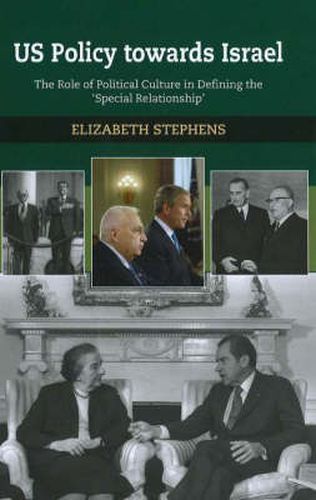Readings Newsletter
Become a Readings Member to make your shopping experience even easier.
Sign in or sign up for free!
You’re not far away from qualifying for FREE standard shipping within Australia
You’ve qualified for FREE standard shipping within Australia
The cart is loading…






The rationale for Washington’s enduring commitment to Israel has long been a puzzle. During the Cold War it was argued that democratic Israel was a natural ally amidst a world of semi-authoritarian and often pro-Soviet states,. But the Cold War is over, and the American commitment to Israel, a small state that is largely oil free, and of little tangible economic benefit, remains. An alternative view is that the US commitment is underwritten by the Jewish lobby which exercises a disproportionate influence on American policy. Even when combined with the influence of Protestant fundamentalists who, for largely religious reasons, increasingly support Israel, it is still questionable whether interest group politics could determine American foreign policy to such an extent. Despite transitions between Republican and Democratic presidents, bureaucratic support for Israel remains relatively constant indicating that support for Israel is not a product of partisan politics but a given, firmly ingrained in political discourse. This book explains the American commitment to Israel within a framework of political culture. Although political culture is not the sole explanatory factor in the development of US policy toward Israel, it has played a key role in serving to shape and define the American approach to foreign affairs, thus contributing to decisions and operations that cannot easily be explained solely in geopolitical, economic or military terms.
$9.00 standard shipping within Australia
FREE standard shipping within Australia for orders over $100.00
Express & International shipping calculated at checkout
The rationale for Washington’s enduring commitment to Israel has long been a puzzle. During the Cold War it was argued that democratic Israel was a natural ally amidst a world of semi-authoritarian and often pro-Soviet states,. But the Cold War is over, and the American commitment to Israel, a small state that is largely oil free, and of little tangible economic benefit, remains. An alternative view is that the US commitment is underwritten by the Jewish lobby which exercises a disproportionate influence on American policy. Even when combined with the influence of Protestant fundamentalists who, for largely religious reasons, increasingly support Israel, it is still questionable whether interest group politics could determine American foreign policy to such an extent. Despite transitions between Republican and Democratic presidents, bureaucratic support for Israel remains relatively constant indicating that support for Israel is not a product of partisan politics but a given, firmly ingrained in political discourse. This book explains the American commitment to Israel within a framework of political culture. Although political culture is not the sole explanatory factor in the development of US policy toward Israel, it has played a key role in serving to shape and define the American approach to foreign affairs, thus contributing to decisions and operations that cannot easily be explained solely in geopolitical, economic or military terms.